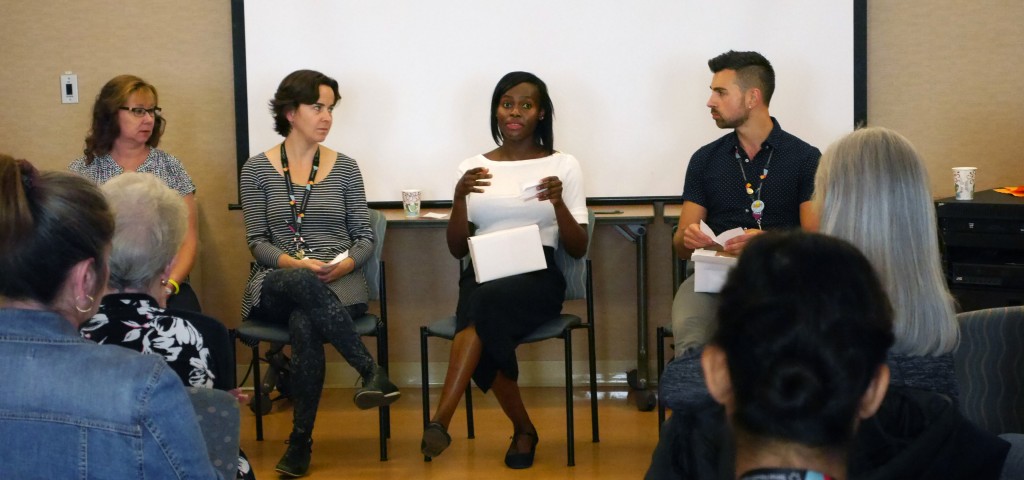Dementia Caregivers Learn Tips for Navigating Hospital Stays
Dealing with a loved one in hospital can be challenging and stressful for any family. But for dementia patients and their caregivers, the experience may trigger even more anxiety and tension than usual.
Understanding what to expect during a visit to the emergency department or a longer stay in hospital was the focus of the fifth annual World Alzheimer’s Day educational session held by the Cyril & Dorothy, Joel & Jill Reitman Centre for Alzheimer’s Support and Training at Mount Sinai Hospital. The session, held in recognition of World Alzheimer’s Month, was attended by caregivers and clinicians.
“When someone with dementia arrives at the hospital, they’re almost always there for an acute medical condition, but their dementia can truly impact the care they require,” said Dr. Joel Sadavoy, Head of Geriatric Psychiatry at the Reitman Centre, who opened the session.
Attendees heard from Carla Loftus and Mavis Afriyie-Boateng, Clinical Nurse Specialists at Mount Sinai Hospital; Matthew Royal, Clinical Nurse Specialist/Nurse Practitioner at Mount Sinai Hospital; and Carolyn Pichot, Nurse Practitioner for Crisis Outreach Service for Seniors.
The panel shared the following tips and considerations for caregivers who need to bring a loved one with dementia to hospital.
- Bring familiar comfort items from home. Whether waiting for test results, waiting to see a doctor, or waiting to be admitted/discharged, waiting is an inevitable part of a hospital stay. Bringing items to keep loved ones occupied is a good way to prevent boredom, which can lead to acting out and aggressive behaviour.
- Communicate! Caregivers should communicate as clearly as they can with hospital staff and with their hospitalized family member. Nurses and doctors can be very flexible to meet the needs of every patient, and will work as closely as they can to ensure that they perform only tasks that are medically necessary.
- Bring sensory aids to the hospital. Any medical aids, like dentures, eyeglasses or hearing aids can be extremely helpful in providing a sense of stability to the patient, and allow them to participate in their care. Keep nurses informed about these sensory aids.
- Label everything. Things can go missing at hospitals, such as eyeglasses left on a meal tray, or a blanket tossed in with soiled linens. By having personal items labelled, it’s much easier for nurses and other hospital staff to return lost items to their rightful owners.
- Use hospital whiteboards. Most hospital rooms are equipped with whiteboards that patients and their family members can use to communicate with staff. Caregivers should use these whiteboards as much as they can (or make their own signs) with vital information. If the patient speaks another language, writing basic words and their phonetic spelling can be useful to nurses to bridge the language barrier.
- Share the patient’s daily routine. Hospital staff are often open to modifying a patient’s care to match their home routine. If a patient normally wakes up at 11 a.m., it’s helpful for nurses to know not to wake that patient earlier if possible.
- Consider hospital alternatives. For many people with dementia, going to an emergency room introduces a level of disruption in their routines that can lead to aggressive behaviour. For non-urgent care, COSS operates the Toronto Seniors Helpline: 416-217-2077. Patients are seen, usually within 48 hours, by healthcare professionals in the comfort of their own homes.



